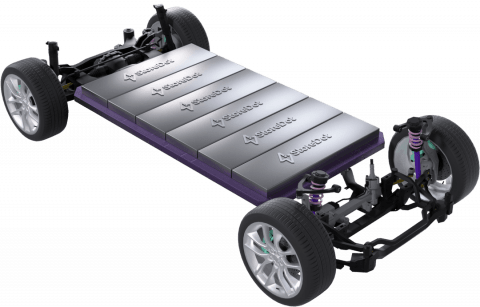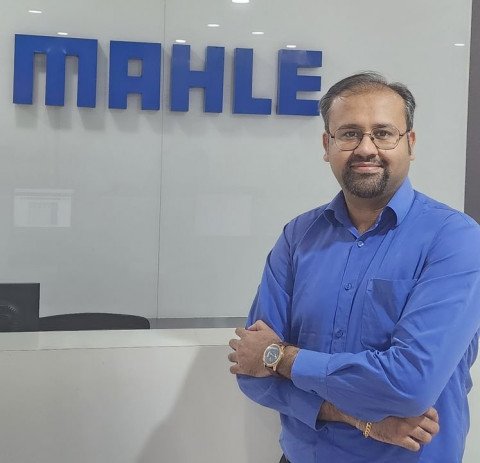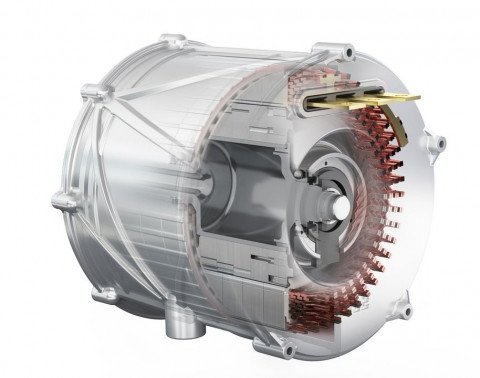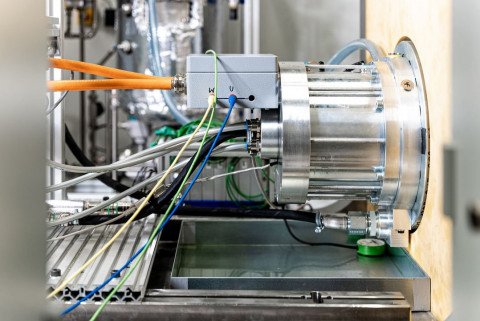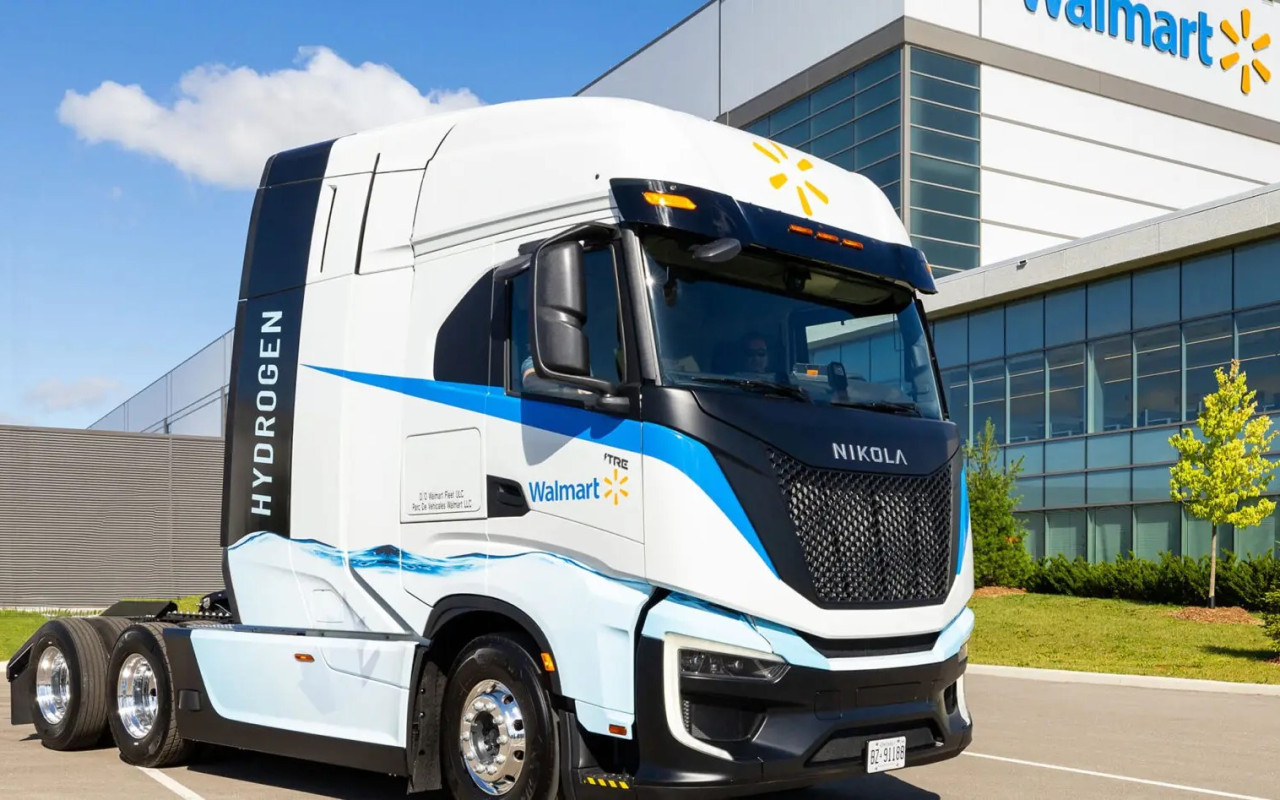"We are bullish in making India the global hub for manufacturing E2W and E3W motors and controllers, as the country is the largest market for two-wheelers and three-wheelers", said Jupiter Kalra, Head Sales & Marketing, MAHLE Holding (India) Private Limited, in his exclusive interaction with Ashok Thakur. He spoke on the German auto component maker's strategy for E-mobility in India and its relevance on the global EV supply chain.
Jupiter Kalra, Head Sales & Marketing, MAHLE Holding (India) Private Limited
At the global level, Mahle's systems and solutions for EVs cover almost all segments - from e-scooters, machinery to commercial vehicles and passenger cars. Thanks to the company's expertise in electric and electronic components, it claims to offer integrated system solutions for global automakers. The company is also providing large scale and affordable AC destination charging infrastructure in developed markets.
The company showcased its Superior continuous torque (SCT) E-motors and a new cooling concept at the Auto Expo - Components Show 2023 in January this year. While the SCT e-motor for E2Ws is designed for high performance and reliability, the cooling concept is suitable for passenger cars, commercial vehicles, construction machines, and tractor applications, making Mahle a full-range provider in the field of electric drives, it claims.
Excerpts from the interaction:
Tell us about Mahle's product portfolio on the EV side in India. Which are the local EV makers you are working with at present?
Mahle's product stable for E-mobility in India covers the entire gamut of motors and controllers, whose compatibility and technological reliability is critical for the performance and efficiency of electric vehicles. We make all types of motors – including induction motors, permanent magnet motors, and so on for E2Ws and E3Ws. We are one of the first companies to start local manufacturing of these components in India.
Ather is one of the prominent OEM we support since their initial days of product development in 2014. Initially, we started prototyping and supplied motors and controllers from Europe, and later started manufacturing them locally in India to cater to Ather's volume ramp-up in recent years and localization requirements of the FAME scheme.
What is the localization level that Mahle has achieved with motors and controllers in India? What about local R&D for EV products? Any scope for exports to alike markets from India?
We are getting to the maximum level of localization possible with these products in India. As far as R&D is concerned, we have about 100 engineers working for domestic requirements. At our Engineering Center in Pune, we have about 400 engineers already supporting Mahle's global requirements on R&D, along with another 400 engineers for non-engineering support of our global operations. With the development of the market, Mahle's R&D operations in India is bound to increase in a big way.
As far as exports as concerned, India is the big market for two- and three-wheelers, so it makes perfect sense for us to have a local manufacturing and meet the domestic demand at the moment. I'm rejoiced to say that Mahle has decided to make India the global hub for manufacturing these motors and controllers. Despite our strong export capabilities from China, we can still explore exports to alike markets in the coming years.
Mahle's Superior continuous torque (SCT) E-motor. Source: Mahle
Is Mahle also eying the light four-wheeler EVs and passenger cars segment? Why targeting E2W and E3W segments to start with?
In the two- and three-wheeler EV segments, we see huge demand. The EV penetration is reaching about 6 percent and 50 percent in the two- and three-wheeler segments respectively. However, the penetration is less than one percent in the four-wheeler segments, as the EV volumes are yet to mature. More so, we also saw a huge dip in electric passenger car sales in India post the COVID, as the market is yet to develop. Even if EV trend picks up in, say 8-10 percent, the penetration share is likely to be just 10-15 percent. So, we have decided to focus on the E2W and E3W segments to start with.
Having said that, we are in touch with four-wheeler manufacturers to find the right spots of opportunities. Once we find a strong business case, Mahle would not shy away from catering to the segment of bigger EVs, as we have technology and manufacturing capabilities.
Isn't E2W components space a highly competitive and price-sensitive space to contest, thanks to cheaper import options especially in the low-end, mass-market (high-volume) side of the spectrum?
Not really. Mahle in India is focussing on mid-drive motors for E2Ws, and we have consciously avoided the hub-motors meant for low-speed e-scooters space, where cheaper and competitive import options are available. Our products are technologically sound, offering an EV performance comparable to ICE-powered scooters. But we do have hub-motor technologies, but see better future in the mid-drive motors in the domestic market.
Mahle's new cooling concept for EVs. Source: Mahle
Any plans to venture into the assembly of EV battery systems for the Indian EV makers?
No plans in the Indian market. We see a clear trend in India that all OEMs are making battery packs in-house, with cells imported from China or Korea and assembled beside their vehicle assembly. So, it does not make sense for us to go into the battery systems side. We don't see any scope at the moment.
RELATED: Cellcentric, MAHLE to cooperate on supply of components for H2 fuel cell systems
With what other products/ technologies does Mahle see strategic opportunity in the EV side?
Battery cooling is something we are interested and already supporting in developed markets. If you consider our global turnover at present, about 45 percent comes from thermal management solutions. This business unit hold critical relevance for future, as even if ICEs go away, EVs will still need thermal management and HVAC systems. Given our immense knowledge and expertise in this space, we can develop cutting-edge products to suit the different needs of the EV segment. We certainly have an edge over others in this regard.
